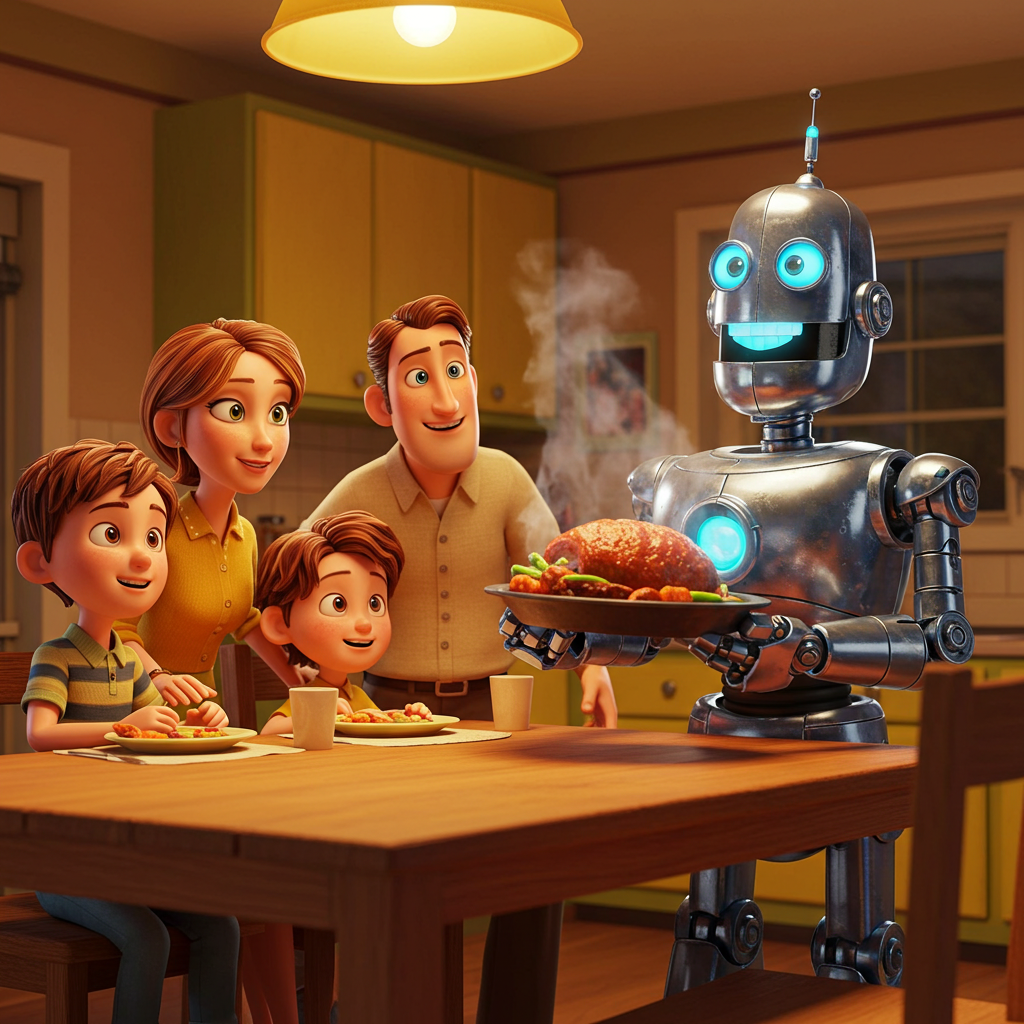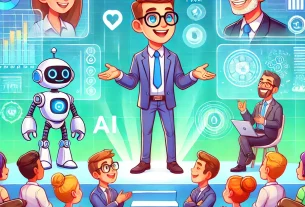# The Rise of AI in Everyday Life: How Artificial Intelligence is Changing Our World
## Introduction
Imagine if your phone could understand you almost like a best friend or if your car knew the best way to avoid traffic before you even left home. Welcome to the world of Artificial Intelligence (AI)! AI is no longer just something from sci-fi movies but is a real part of our everyday lives. AI is when machines and computers can think like people by learning, reasoning, and fixing mistakes. It’s like having a super-smart robot buddy—don’t worry, it’s not going to take over the world!
AI has come a long way since the 1950s. We’ve moved from basic computer programs to super-smart systems like Google’s DeepMind. Now, AI is part of our daily routines. This blog is here to show you how AI is becoming our new helpful friend, changing the way we live, work, and have fun.
## AI in Consumer Technology
1. **Smart Devices:**
– **Smartphones:** From Siri and Google Assistant in your pocket to AI that can understand even the weird lyrics you sing.
– **Smart Speakers:** Whether you’re asking Alexa to play your favorite song or Google Nest to tell you about your day, these gadgets bring the future into our homes.
– **Wearable Technology:** Fitbits and Apple Watches keep track of your heart and gently remind you to stretch those legs.
2. **Home Applications:**
– **Smart Thermostats:** These devices manage your home’s temperature better than anyone— even your aunt who’s always too cold.
– **Automated Lighting Systems:** From turning off the lights you forgot to the perfect movie night lighting, these systems have got you covered.
– **Robotic Vacuums:** Ever heard of a robot pet? With Roombas, you get clean floors and cat entertainment all in one.
3. **Entertainment:**
– **Recommendation Algorithms in Streaming Services:** Netflix knows your secret love for midnight romantic comedies and thrilling mysteries.
– **AI in Video Gaming:** Games now adjust to keep you entertained and challenged at just the right level.
– **Personalized Music Playlists:** Spotify’s ‘Discover Weekly’ is like having your own DJ playing songs you’ll love, even if you haven’t heard them before.
## AI in Transportation
1. **Autonomous Vehicles:** Self-driving cars aren’t just from movies; they’re real and learning to deal with tricky roads and traffic lights.
2. **Navigation and Route Planning:** Apps like Waze and Google Maps use AI to help you avoid traffic (or at least try).
3. **Predictive Maintenance for Vehicles:** AI can tell you when your car needs fixing before it becomes a real problem.
4. **Traffic Management Systems:** AI is working hard to improve traffic flow so we spend less time stuck in traffic.
## AI in Healthcare
1. **AI Diagnostic Tools:** AI acts like a super detective, spotting diseases in medical images sometimes faster than doctors.
2. **Personalized Treatment Plans:** With AI, treatments are designed just for you, making them more effective.
3. **AI in Drug Development:** AI speeds up making new medicines, making the search for cures faster.
4. **Virtual Health Assistants:** These digital helpers answer your health questions at odd hours when internet searches leave you worried.
5. **Robotic Surgery:** Robots help in surgeries, making “steady hands” less of a worry and more of a helper.
## AI in Finance
1. **Fraud Detection:** AI quickly finds and stops fraud before it can do anything bad.
2. **Algorithmic Trading:** AI manages stock trading with incredible speed and accuracy, like it’s dancing on the stock market floor.
3. **Personalized Banking Services:** AI offers financial advice that seems to understand your love for new gadgets.
4. **AI-driven Credit Scoring:** AI looks at more than just your old library fine when figuring out your credit score.
5. **Financial Forecasting:** AI predicts market changes to help investors make smart decisions.
## AI in Education
1. **Personalized Learning Experiences:** AI creates lessons that match each student’s learning speed—one size doesn’t fit all!
2. **AI Tutors:** It’s like having a patient teacher by your side who never tires of explaining math problems.
3. **Automated Grading Systems:** No more waiting for grades, as AI provides fast and fair feedback.
4. **Virtual Classrooms Enhanced with AI:** AI adapts lessons to keep every student interested.
5. **Language Translation and Learning:** AI is much better than old phrasebooks, breaking down language barriers.
## Ethical Considerations
With great power comes great responsibility. As AI becomes a bigger part of our lives, we need to think about:
1. **Privacy Concerns:** How do we enjoy AI without losing our privacy? No one wants a nosy robot.
2. **AI Bias and Decision Making:** Sometimes AI can pick up bad habits from its training data, so we need to make sure it’s fair to everyone.
3. **Impact on Employment and Job Displacement:** AI is here to work with us, not replace us entirely.
4. **Regulations and Ethical Guidelines for AI:** We need rules to keep AI safe and helpful, avoiding any sci-fi disasters!
## Future Trends
What’s next for AI as it becomes more advanced?
1. **Integration in Emerging Technologies:** Imagine IoT devices making homes smarter and 5G networks offering super-fast connections.
2. **AI’s Role in Sustainable Technologies and Initiatives:** From helping with weather predictions to saving energy, AI is ready to help the Earth.
3. **Advancements in AI Research:** As AI becomes more advanced, new exciting discoveries are happening all the time.
4. **Potential Societal Impacts of Widespread AI Adoption:** It’s important for us to keep learning and adapting as AI becomes a bigger part of our lives.
## Conclusion
To wrap it up—AI is here and it’s changing the ordinary into something amazing. AI is making life easier and more exciting. By understanding these changes and becoming more tech-savvy, we can all enjoy this wild ride!
## Further Reading and Resources
If you’re interested in learning more about AI, here are some resources:
1. **Books**: “Superintelligence: Paths, Dangers, and Strategies” by Nick Bostrom, “Life 3.0: Being Human in the Age of Artificial Intelligence” by Max Tegmark.
2. **Online Courses**: Websites like Coursera and edX have awesome courses on AI.
3. **AI-focused Blogs and Websites**: Check out places like Singularity Hub for cool AI news and ideas.
4. **Academic Papers and Journal Articles**: For more detailed info, look at papers from sites like JSTOR and ResearchGate.
Keep up with AI’s fast changes—it’s an exciting blend of science and imagination, and we’re all part of it!




